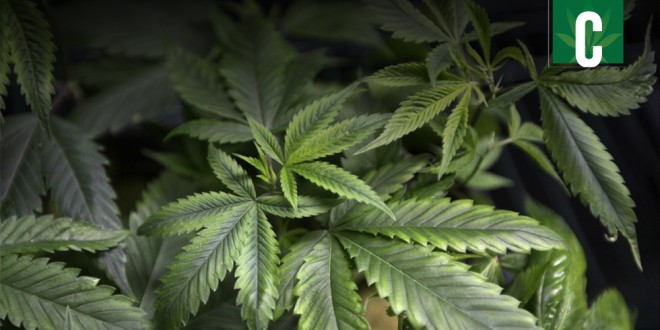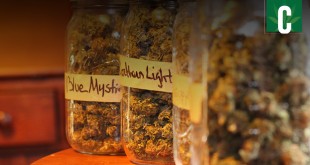Californians are big supporters of legalizing marijuana – most of them, anyway. But it turns out there are two big groups fighting to stop it from happening, groups with a vested interest in the issue.
 Most of the opposition to cannabis reform is coming from the state’s police officers and prison guards, who stand to lose millions of dollars in grant money, asset seizures, and other sources of revenue should marijuana go legal.
Most of the opposition to cannabis reform is coming from the state’s police officers and prison guards, who stand to lose millions of dollars in grant money, asset seizures, and other sources of revenue should marijuana go legal.
Twenty years after California voters became the first in the nation to legalize the adult use of medical marijuana, a new initiative will appear on the November ballot that would allow the drug for recreation as well. Public support for the idea is high.
The initiative is endorsed by a wide array of advocates and pubic officials, including Lt. Gov. Gavin Newsom, Democratic presidential candidate Bernie Sanders, and the California branch of the NAACP.
But on the other side of the issue, opponents have raised $60,000 this year for the Coalition for Responsible Drug Policies, a group composed of police and prison guard lobbies. They include the California Police Chiefs Association, the Riverside Sheriff’s Association, the Los Angeles Police Protective League, and the California Correctional Supervisors’ Organization.
That money is a drop in the bucket compared to the more than $2 million already raised by pro-legalization groups. But it’s notable that half the money raised by opponents comes from lobbies for police officers and guards, The Intercept reported in May.
Some of the leading opposition is coming from two lawmakers, state Sen. Cathleen Galgiani and Assemblyman Jim Cooper. Galgiani has a close relationship with police groups and officers, while Cooper once worked for the Sacramento County Sheriff’s office.
Majority support for legalization
A February poll showed about 60 percent of the state’s voters want to legalize cannabis for personal use. That’s a big improvement since the last time reformers tried to make pot legal in California, in 2010. That bid died at the polls, largely because of weak public backing.
 This time around, the reformers are led by tech billionaire Sean Parker, former president of Facebook and creator of Napster. He has donated the largest part of the $2.2 million raised in support of legalization.
This time around, the reformers are led by tech billionaire Sean Parker, former president of Facebook and creator of Napster. He has donated the largest part of the $2.2 million raised in support of legalization.
The stakes are huge for both sides. Legalization would create a multi-billion dollar marijuana industry almost overnight. On the other hand, it would rob police and prisons of large grants and the ability to seize assets during minor drug arrests.
This practice, known as “asset forfeiture,” allows police to take cash and other property, including cars, from drug suspects – and keep it even if the suspect is never convicted in court. Prisons, meanwhile, would lose the steady stream of new cannabis prisoners who help keep them in business.
It costs thousands of dollars every year to house and feed each inmate locked up for a marijuana offense. Taxpayers foot that bill, giving guards incentive to keep incarceration rates high.
Law enforcement groups have a lot of power in California politics. They successfully guaranteed the adoption of the “three strikes” ballot initiative in 1994 that led to a huge spike in imprisonment rates, especially among young black men. And the prison union defeated a 2008 proposition that would have created a diversion program for non-violent drug offenders.
—
Comment below: What do you think legalization advocates can do to overcome opposition by police and prison guards?
 California Marijuana Market Breaking "Marijuana News" from CA
California Marijuana Market Breaking "Marijuana News" from CA





